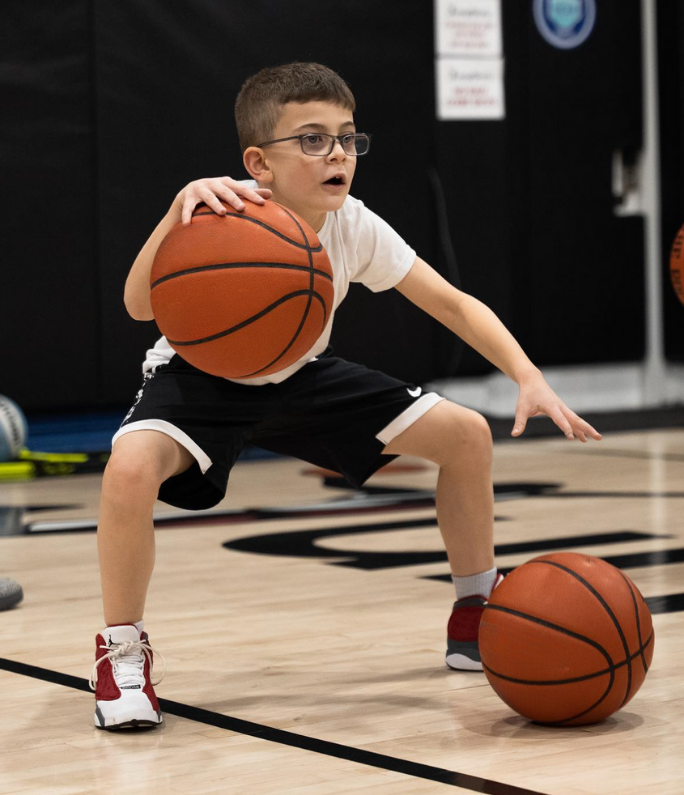Beginner players foster a love for the game.
Tuesday October 1 2024
Take your game to the next level

Parental support is important at all levels.
Basketball is a dynamic and engaging sport that provides children with physical fitness, teamwork, and lifelong skills. Starting young can be advantageous, but what age is best for beginners to start playing basketball? How can parents effectively support their young athletes? In this article, we’ll explore the benefits of early involvement, the range of ages suitable for starting, and how effective coaching—especially through programs like Junior Athletics—can foster improvement in beginner players.
The Right Age to Start
While children can start learning basketball fundamentals as early as age 6, the ideal range for beginners typically spans from ages 6 to 14. This age group allows for flexibility in skill development and helps accommodate varying levels of interest and physical ability.
Junior Athletics offers specialized programs that cater to this broad age range, introducing young players to the game in a fun and engaging way. These programs focus on skill development while fostering a love for the sport, making it easier for kids to transition into more competitive play as they grow older.
Benefits of Early Involvement
Starting basketball at a young age offers numerous benefits. Physically, it helps children improve their coordination, balance, and agility. Mentally, it promotes discipline, focus, and problem-solving skills. Socially, it encourages teamwork and communication, allowing kids to make friends and build relationships. Moreover, early exposure to basketball can ignite a passion for the game, instilling a lifelong love of sports and physical activity. For many kids, the court becomes a place of joy, challenge, and growth, setting the foundation for future athletic pursuits.
How Parents Can Support Beginner Athletes
Parents play a crucial role in their children’s athletic journeys. Here are some ways to provide effective support for young basketball players:
1. Encouragement and Positivity: Celebrate small victories and improvements. Positive reinforcement boosts confidence and keeps young athletes motivated.
2. Involvement: Attend games and practices to show support. Your presence can make a significant difference in a child’s experience and enjoyment of the sport.
3. Practice Together: Encourage practice outside of organized sessions. Simple drills at home, like shooting hoops or dribbling, can reinforce skills and improve performance.
4. Emphasize Fun: Remind your child that the primary goal is to enjoy the game. Pressure to win can lead to stress and burnout, so prioritize fun and learning over competition.
5. Open Communication: Foster an environment where your child feels comfortable discussing their feelings about basketball. Listening to their thoughts can help you better support their needs.
The Role of Effective Coaching
Effective coaching is critical for beginner basketball players. Coaches who focus on the fundamentals while also spotting the details for improvement can make a significant impact. Junior Athletics excels in this area, providing a nurturing environment for young athletes.
1. Skill Development: Coaches emphasize fundamental skills such as dribbling, passing, shooting, and defense. They teach proper techniques to help prevent injuries, ensuring a solid foundation.
2. Individual Attention: Junior Athletics coaches pay attention to each player’s strengths and weaknesses, providing tailored feedback to help them improve.
3. Positive Reinforcement: Coaches who encourage and praise effort create a positive environment that fosters growth and self-esteem. This helps young players feel valued and motivated.
4. Creating a Supportive Team Culture: A coach who fosters teamwork and camaraderie helps young athletes develop not just as players, but as individuals. Junior Athletics promotes a supportive atmosphere that encourages players to work together and build friendships.
5. Goal Setting: Coaches guide players in setting achievable goals, both individually and as a team. This approach helps improve skills while teaching valuable lessons about dedication and perseverance.
Conclusion
Beginning basketball at a young age can set the stage for a rewarding athletic experience. With the right support from parents and effective coaching—especially through programs like Junior Athletics—beginner players can develop essential skills while fostering a love for the game. By encouraging a positive, fun, and growth-oriented environment, parents can help their children thrive both on and off the court, paving the way for a lifelong journey in sports.